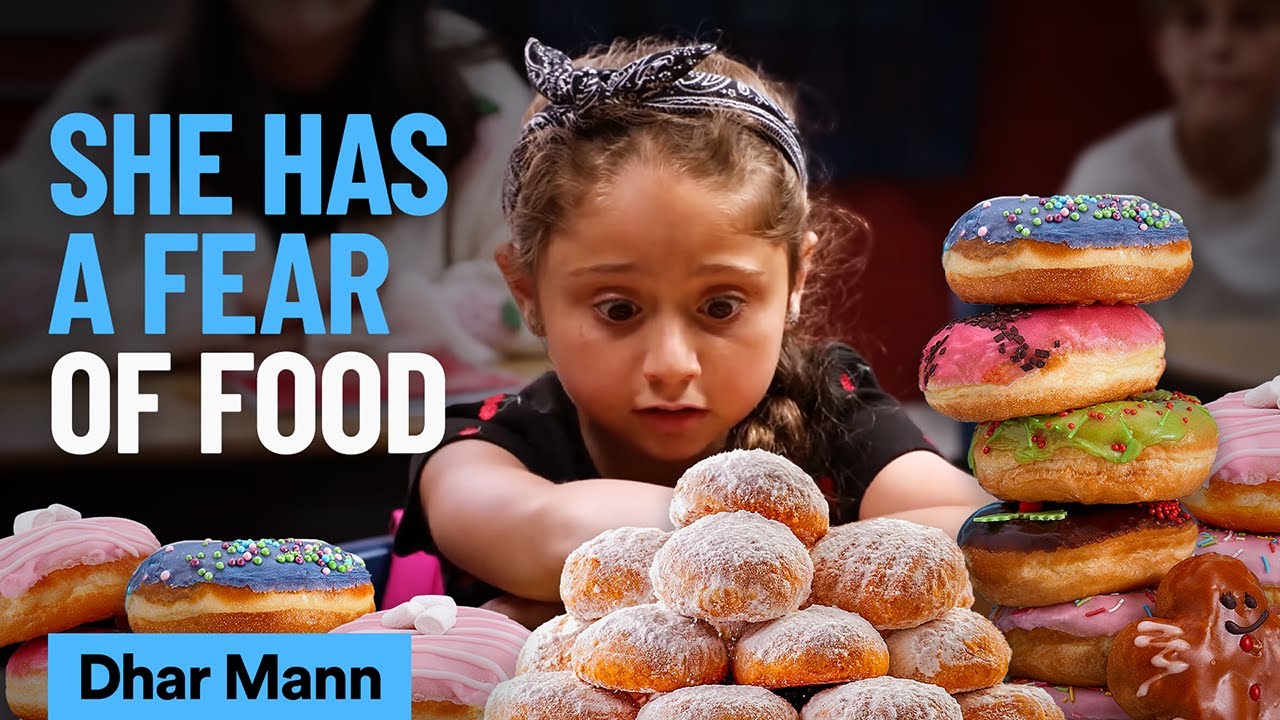100 days without fear | Michelle Poler | TEDxHouston
Summary
TLDRThe speaker shares her journey of facing 100 fears over 100 days, starting with a school assignment that challenged her to confront her fears. She discovered that her multitude of fears could be categorized into seven core fears. By facing them, she learned a predictable process of fear confrontation and developed tools to manage fear. Her project evolved from personal growth to inspiring others worldwide to step out of their comfort zones and embrace life fully.
Takeaways
- 🎓 The speaker started her journey of facing fears during her master's degree at the School of Visual Arts in New York City.
- 🔍 An assignment to write about her best possible life in ten years led her to realize the crippling effect of fear on her life.
- 🏃♀️ She decided to confront her fears head-on by starting a 100-day project to face each fear individually.
- 👶 Childhood experiences played a significant role in shaping her fears, such as the fear of dogs and traveling.
- 🔑 She discovered that what she thought were 100 different fears could be categorized into just 7 core fears.
- 🔬 She classified her fears into universal, cultural, and personal values to understand their origins.
- 🌟 Facing her fears led to personal growth, such as getting a piercing and a Brazilian wax, and trying spicy food.
- 🧠 The process of facing fears typically involves stages of discovery, denial, determination, action, and celebration.
- 🛠️ She developed cognitive, behavioral, and emotional tools to help herself and others face their fears.
- 🌈 Fear is a natural part of life, but it shouldn't control us; instead, we should learn to negotiate with our fears.
- 🌟 The project evolved from a personal journey to inspiring others worldwide to face their fears and live life to the fullest.
Q & A
What was the assignment given by Debbie Millman to the class?
-Debbie Millman asked the class to write an essay about their best possible lives ten years from now, identify the obstacles that could get in the way of that future, and then pinpoint one crucial obstacle.
How did the speaker realize her life was crippled by fear?
-The speaker realized her life was crippled by fear when she was asked to identify the obstacles to her best possible future and discovered that fear was the main thing holding her back.
What was the 100-day project the speaker decided to undertake?
-The speaker decided to start facing all of her fears one by one as her 100-day project.
What was the speaker's realization after facing almost 40 different fears?
-The speaker realized that she was not facing 100 different fears but rather seven core fears that manifested in different ways.
What are the seven core fears the speaker identified?
-The seven core fears the speaker identified are pain, danger, disgust, embarrassment, rejection, loneliness, and control.
How did the speaker categorize her fears according to values?
-The speaker categorized her fears into three stacks of values: universal, cultural, and personal. Universal fears are inherent to all humans, cultural fears are shaped by society, and personal fears are influenced by individual experiences and backgrounds.
What is the natural process of facing fear as described by the speaker?
-The natural process of facing fear described by the speaker includes the discovery stage, denial stage, determination stage, 'WTF am I doing' stage, action stage, and the celebratory stage.
What tools did the speaker develop to help face her fears?
-The speaker developed cognitive tools (positive self-talk), behavioral tools (like counting before taking action), and emotional tools (putting herself in a good mood before facing fear).
How did the speaker's project evolve after it was discovered by the media?
-After the project was discovered by the media, the speaker's goal shifted from becoming braver herself to inspiring others to leave their comfort zones, face their fears, and live life to the fullest.
What was the assignment the speaker gave to the audience at the end of her talk?
-The speaker asked the audience to think of one fear they would like to face in the upcoming week, face it, and then share their experience to inspire others.
What is the speaker's view on absolute fearlessness?
-The speaker does not believe in absolute fearlessness but believes that we can negotiate with our fears to pursue our dreams and open ourselves to new experiences.
Outlines

Esta sección está disponible solo para usuarios con suscripción. Por favor, mejora tu plan para acceder a esta parte.
Mejorar ahoraMindmap

Esta sección está disponible solo para usuarios con suscripción. Por favor, mejora tu plan para acceder a esta parte.
Mejorar ahoraKeywords

Esta sección está disponible solo para usuarios con suscripción. Por favor, mejora tu plan para acceder a esta parte.
Mejorar ahoraHighlights

Esta sección está disponible solo para usuarios con suscripción. Por favor, mejora tu plan para acceder a esta parte.
Mejorar ahoraTranscripts

Esta sección está disponible solo para usuarios con suscripción. Por favor, mejora tu plan para acceder a esta parte.
Mejorar ahoraVer Más Videos Relacionados

Life Lessons from the Youngest Person to Travel to Every Country | Lexie Alford | TEDxKlagenfurt

How to Start a Business | The Tim Ferriss Experiment

8-Year-Old HAS A FEAR Of ALL FOOD (ARFID) | Dhar Mann Studios

इस Pitcher को Anupam ने Offer कर दी अपनी Shark की Chair | Individual Shark Wins

Make $700/Day Dropshipping | STEP BY STEP (FOR BEGINNERS) HOW TO START NOW

“Turn Around” by Zifang “Sherrie” Su, 2018 World Championship of Public Speaking® 2nd Place Winner
5.0 / 5 (0 votes)
